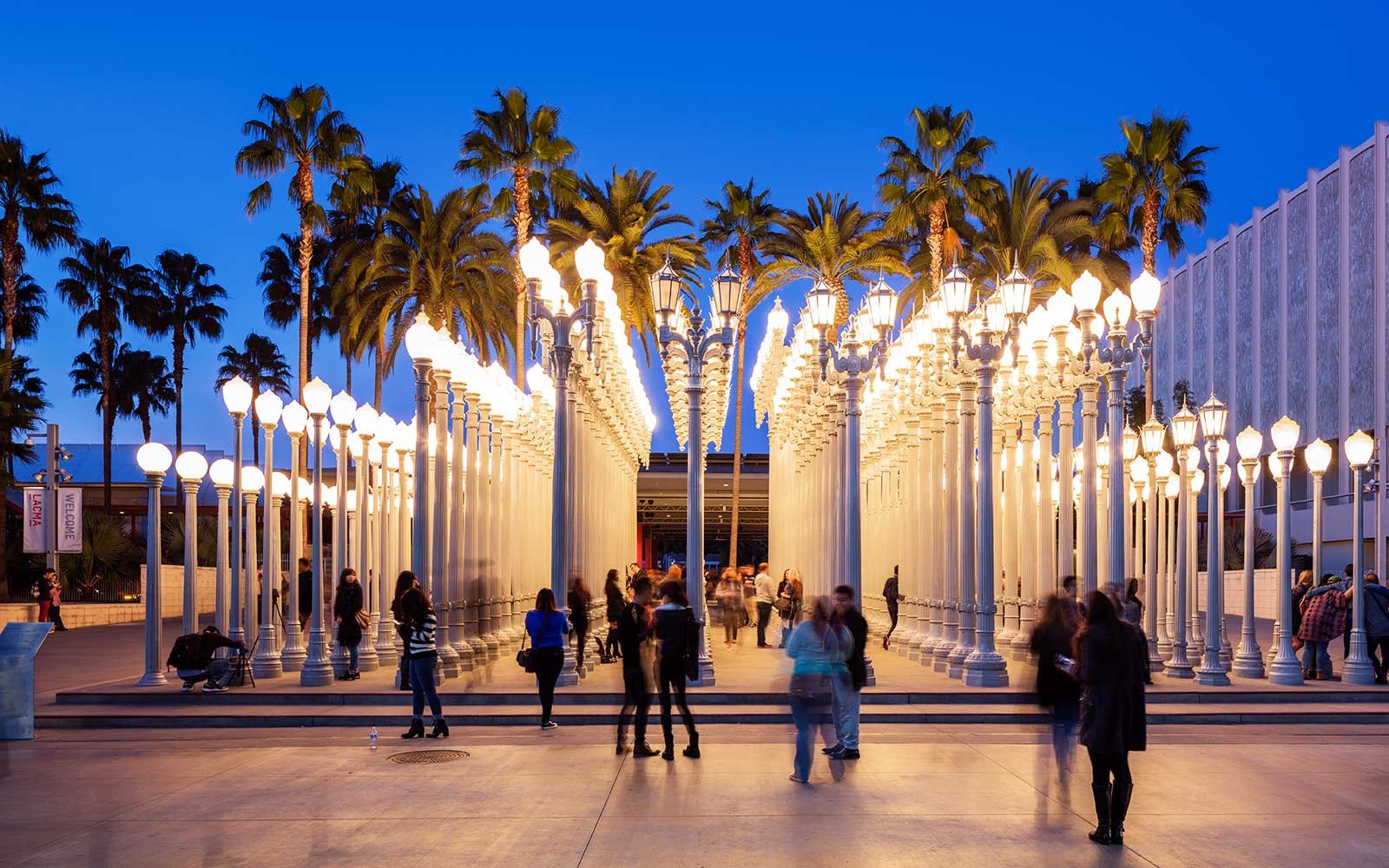
An Indonesian selfie paradise has been ordered to destroy one of its most popular attractions due to a copyright violation. The offending photo op, Love Light, appears to be a ripoff of Urban Light (2008), the famed public art installation by the late artist Chris Burden.
The Indonesian Commercial Court at the Central Jakarta District Court agreed with that analysis, siding with the Burden estate in its lawsuit against Rabbit Town. The tourist attraction on the island of West Java, in the city of Bandung, has 30 days to remove the infringing artwork and issue a public apology to the estate.
“This is a landmark case for the Indonesian court system, and a win for all artists globally,” Yayoi Shionoiri, the executive director of the Burden estate, told Artnet News in an email. “We believe this decision sets a precedent that artist rights can be protected internationally through the application of the copyright framework.”
Rabbit Town did not respond to inquiries from Artnet News, but the park’s Instagram account was still posting photographs of the infringing work as recently as yesterday, calling it “our icon.”
The original Burden installation greets visitors at the entrance to the Los Angeles County Museum of Art.
Rabbit Town is still promoting Love Light, which must be destroyed according to a ruling in Indonesian court.
Rabbit Town founder Henry Husada, a hotel magnate who named the park after his zodiac sign, argued in his defense that the two works were not similar (despite the fact that both are symmetrical displays of hundreds of ornate lampposts arranged in rows of descending height) and that Urban Light was not well-known in Indonesia. It did not help his case that photographs provided as evidence showed Husada’s daughters posing happily in front of the Burden work during a visit to Los Angeles.
The court found that Love Light met the definition of copyright infringement under Indonesian law. The defendants, who did not attend the hearing, have been ordered to pay the Burden estate Rp1,000,000,000 ($69,000).
Rabbit Town’s Love Light appears to be inspired by Chris Burden’s Urban Light. Photo courtesy of Rabbit Town, via Instagram.
One of the four parks at Wisata Selfie—wisata is Indonesian for “tour” or “tourism”—Rabbit Town opened in February 2018 to capitalize on the growing popularity of swafoto, or “selfie tourism.”
It has been widely criticized for installations that appear to copy the work of multiple artists, including Yayoi Kusama’s Obliteration Room and Colette Miller’s series of angel wing murals in Los Angeles, as well as several rooms from the Museum of Ice Cream, the pop-up museum sensation which has locations in New York and Singapore.
Husada has denied allegations of plagiarism. “From a young age I have loved stickers, that is why we have a ‘Sticker Room,’” he told the Outline. “I have also loved lamps and electricity since I was young.”
To date, the Burden estate, which filed its lawsuit in June, appears to be the only party that has taken legal action against Rabbit Town.
Left, the Rabbit Town Patrico Sticker installation. Right, Yayoi Kusama’s Obliteration Room. Photo via Instagram, @rabbittown.id and @dzrosen.
“Knowing the artistic creativity and time Chris Burden spent on Urban Light, the Burden Estate wanted to vigorously protect his rights,” Shionoiri said. “We felt it was important to take a stance, not just on behalf of Burden but on behalf of artist rights more generally.”
The estate’s legal victory comes despite more lax enforcement of intellectual property laws across Asia, particularly in China, where whole European cities have been recreated, and fake Kusama and Takashi Murakami exhibitions have toured the nation.
“I imagined we would be at a potential disadvantage because we were bringing a lawsuit in an overseas jurisdiction, in a court system that does not often hear copyright cases by artists,” Shionoiri said. “The judge hoped that this decision would set an example that artist rights can be protected internationally through the application of the copyright framework.”